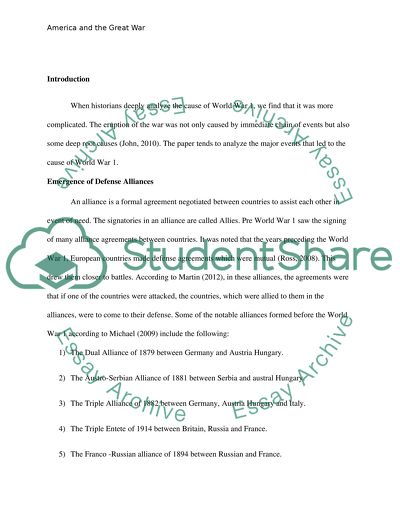Cite this document
(“America and the Great War Essay Example | Topics and Well Written Essays - 1750 words”, n.d.)
Retrieved de https://studentshare.org/history/1472717-america-and-the-great-war
Retrieved de https://studentshare.org/history/1472717-america-and-the-great-war
(America and the Great War Essay Example | Topics and Well Written Essays - 1750 Words)
https://studentshare.org/history/1472717-america-and-the-great-war.
https://studentshare.org/history/1472717-america-and-the-great-war.
“America and the Great War Essay Example | Topics and Well Written Essays - 1750 Words”, n.d. https://studentshare.org/history/1472717-america-and-the-great-war.


